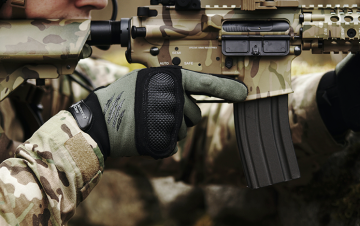A TCC lawyer
Martial law in Ukraine has changed many aspects of everyday life, including the legal relationship between citizens and the state. A significant role in this is played by the territorial recruitment and social support centers (TCS), which are responsible for mobilization, military registration and interaction with conscripts. However, due to low legal culture, lack of proper control or deliberate abuse by individual representatives of the TCS, situations are increasingly occurring when citizens' rights are violated.
In such cases, it is important not to be left alone with the system, but to contact a specialist - a lawyer who specializes in issues of interaction with the TCS. Professional legal assistance allows not only to protect rights, but also to prevent legal consequences that can be serious, including administrative or criminal liability.
Legal stages of cooperation with a lawyer in TCC cases
Below are the key stages of legal support that a client goes through in cooperation with a professional lawyer:
- Initial consultation: During it, the lawyer studies all the circumstances of the case: when and under what conditions the summons was served, what documents the client has to confirm his status (education, employment, health status), whether there were any violations on the part of the TCC. All details are carefully documented, which allows you to form a complete legal picture.
- Assessment of the legality of actions and preparation of requests: At this stage, the lawyer checks whether the requirements of the law have been met when making decisions on mobilization, serving a summons, conducting a medical commission. If necessary, legal requests are sent to medical institutions, military units, educational institutions, etc. to clarify the circumstances of the case and obtain official answers that will have legal force.
- Representation during communication with the TCC: A lawyer can accompany a client during visits to the TCC, participation in medical or mobilization commissions, draw up statements, complaints, and appeals. In the event of detention or attempted forced delivery, the lawyer promptly goes to the scene, records the facts of the violation, and takes measures to protect the client's rights.
- Pre-trial and administrative protection: In cases where there is an abuse of authority, violation of the mobilization procedure, or discriminatory actions, the lawyer files complaints with the prosecutor's office, court, or Human Rights Commissioner. An internal audit of the actions of TCC officials may also be initiated. This stage often allows stopping illegal actions before the case has serious consequences.
- Judicial protection (if necessary): If the case reaches court (for example, in the case of drawing up an administrative protocol or opening criminal proceedings), the lawyer participates in court sessions, prepares statements of claim, complaints, motions, and represents the client's interests in court. The lawyer's full procedural participation significantly increases the chances of a positive resolution of the case.
Each of these stages is aimed at reducing risks for the client, promptly resolving conflicts, and preserving his legal rights in the difficult circumstances of martial law.
Conditions for providing legal assistance when interacting with the TCC
For the successful implementation of legal protection, it is important to adhere to certain conditions of interaction between the client and the lawyer:
- Providing complete and reliable information: The lawyer works exclusively with facts, therefore it is extremely important that the client honestly and in detail sets out all the circumstances: when the summons was served, who witnessed the events, whether there are any medical restrictions, what is the situation with the place of work or study, whether there were appeals to other lawyers or state bodies. Even minor details can affect the result.
- Documentary confirmation: All statements must be supported by relevant documents: summonses, medical certificates, certificates from the place of study or work, copies of military ID cards, records of diseases, etc. In the absence of documents, the lawyer will help to issue the relevant requests or file a petition to request them.
- Prompt communication: A lawyer can act effectively only if the client responds quickly. Coordination of documents, responses to messages, provision of necessary information - all this must be done in a short time. In modern conditions, delays can be too expensive - both in the literal and legal sense.
- Power of attorney and legal registration: For full protection, it is necessary to issue a notarized power of attorney or an official contract for the provision of legal assistance. This allows the lawyer to represent the client's interests before state bodies, receive documents and carry out actions without the client's participation, which saves time and resources.
Compliance with these conditions is the basis for productive cooperation aimed at achieving the maximum legal result.
Advantages of contacting a lawyer when detained by TCC employees

Professional knowledge of military law: A lawyer understands the nuances of mobilization legislation and knows how to act even in non-standard situations.

Protection in stressful circumstances: Military actions create emotional pressure. A lawyer allows you to act coolly and professionally.

The ability to influence the situation even before the conflict: Thanks to competent legal steps, many issues are resolved even before going to court.
Common questions about a lawyer and the TCC
Question
What does a lawyer do at the TCC?
Answer
A lawyer at the TCC advises conscripts, checks the legality of officials' actions, accompanies them during a call, challenges illegal decisions and protects the client's rights.
Question
Who can represent interests at the TCC?
Answer
Interests at the TCC can be represented by a lawyer, a lawyer by power of attorney or a legal representative.
Question
Can a lawyer visit the TCC?
Answer
Yes, a lawyer or advocate can enter the TCC if he has the appropriate documents (certificate, power of attorney or contract with the client) and does not violate the established procedure for access.
What does the cost of a lawyer's services in TCC cases depend on?
The price of legal assistance in TCC cases is formed individually and depends on several factors: the complexity of the situation, the scope of necessary actions (support, appeal to court, representation in commissions), the urgency of the case, as well as the location of the client. In some cases, the cost may change due to the need for a lawyer to travel or conduct the case in several instances simultaneously. The final amount is agreed with the client after the initial consultation.
ConclusionIn difficult times of martial law, every Ukrainian has the right to legal protection. The actions of the TCC must comply with the law, and the rights of citizens must be preserved regardless of the circumstances. Turning to a lawyer is a responsible step that allows you to avoid lawlessness, defend your rights and maintain peace. Don't delay - even one legal consultation can change the situation in your favor.








































